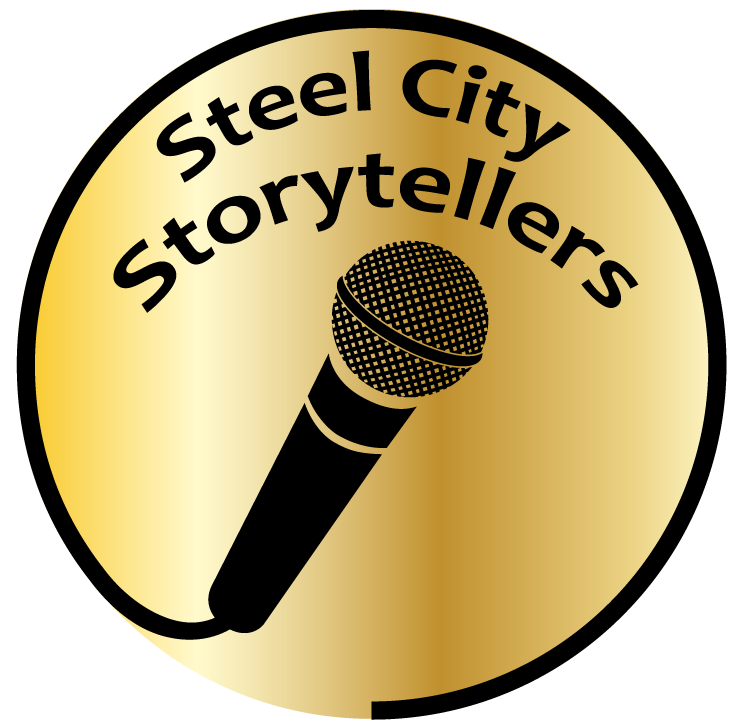STORYCRAFT
Storytelling Tips, Resources, & Guidelines
LEARN HOW TO TELL COMPELLING STORIES
Storytelling Guidelines
1. No hate messages
2. Avoid gratuitous profanity — cursing must be integral to story content
3. May use props
4. Story may not be true but must provide full disclosure on truthiness
5. May use audio visual (Powerpoint, Prezi), music, or multi-media assistance
6. May involve audience participation
7. Length appropriate but not more than 15 minutes, with 5 to 10 being customary range
8. May tell story about others
9. No comedy routines, rants, screeds, speeches, manifestos
10. No poetry
11. May tell existing story as long as it honors copyright and royalty issues
Resources for Storytellers
National Groups & Networks
StorySwap and TELL (Facebook & Twitter presences)
Pittsburgh Groups & Events
Pecha Kucha (20 images x 20 seconds)
Storytelling Festivals
Storytelling Center (Festivals)
Southern Ohio Storytelling Festival
Flatwater Tales, OakRidge, Tenn
Storytelling Blogs
Bloggers talking about storytelling
Podcasts
Storybeat by Steve Cuden, Professor at Point Park
Screenwriting
Robert McKee, Write the Truth
Educational Programs
East Tennessee State Storytelling Program
Books
The Storytelling Animal, by Jonathan Gottschall, How Stories Make Us Human
Storytelling Tips
Master Storytelling Tips from Tim O’Brien, author, from The Things They Carried (1990)
“But the thing about remembering is that you don’t forget. You take your material where you find it, which is in your life, at the intersection of past and present. The memory-traffic feeds into a rotary up on your head, where it goes in circles for a while, then pretty soon imagination flows in and the traffic merges and shoots off down a thousand different streets. As a writer, all you can do is pick a street and go for the ride, putting things down as they come at you. That’s the real obsession. Everyone might make an effort ones beginners luck. Most people might have a shot at your chance. All those stories. Not bloody stories, necessarily. Happy stories, too, and even a few peace stories.” (p.33)
“I want you to feel what I felt. I want you to know why story-truth is truer sometimes than happening-truth.” (p.171)
“But this too is true: stories can save us.” (p.213)
“The thing about a story is that you dream it was you tell it, hoping that others might then dream along with you, and in this way memory and imagination and language combine to make spirits in the head. There is the illusion of aliveness.” (P. 218)
“Whenever he told the story, he had a tendency to stop now and then, interrupting the flow, inserting little clarifications or bits of analysis and personal opinion. It was a bad habit because all that matters is the raw material, the stuff itself, and you can’t clutter it up with your own half-baked commentary. That just breaks the spell. It destroys the magic. What you have to do is trust your own story. Get the hell out of the way and let it tell itself.” (p. 101)
